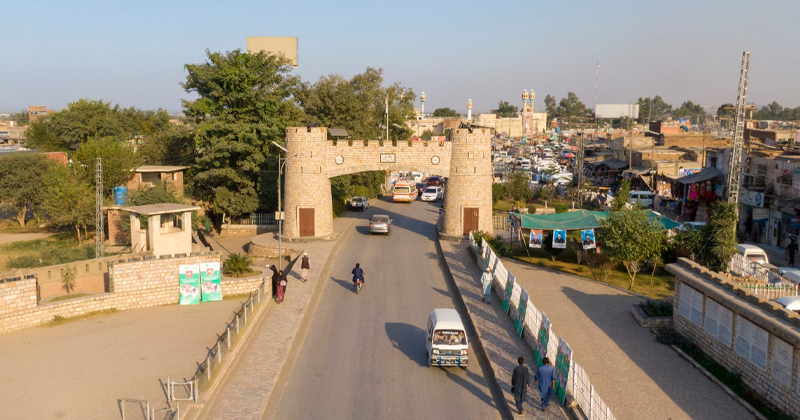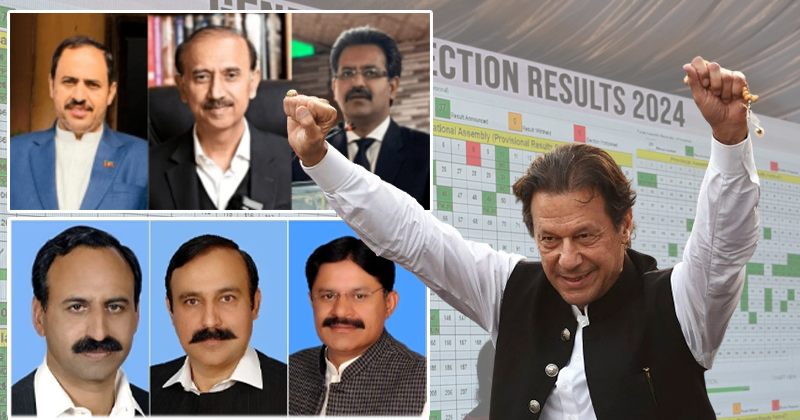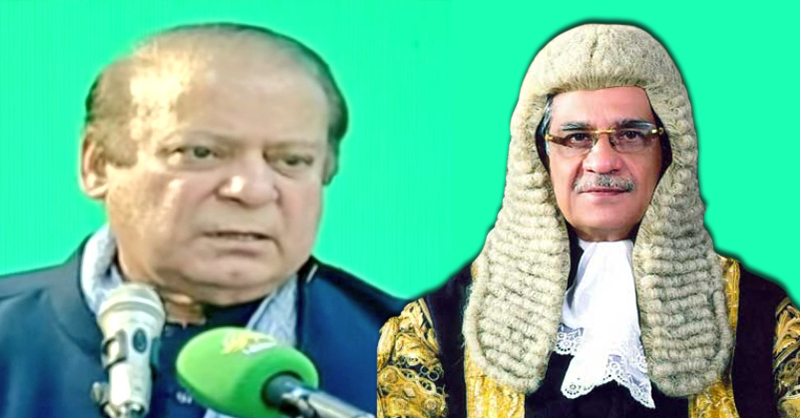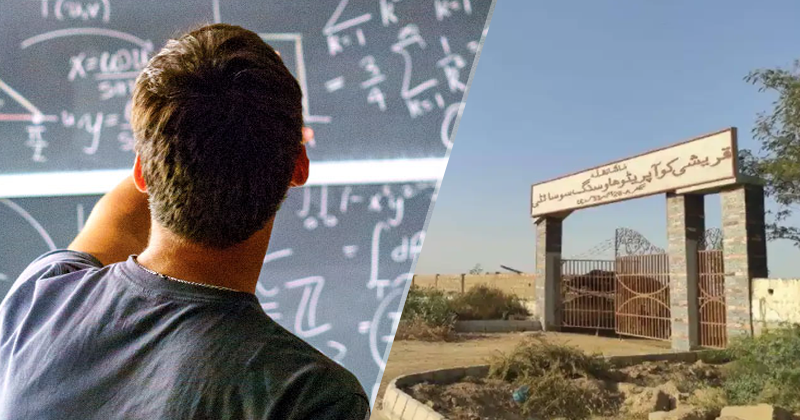I am a Muslim not only because of my birth or inspirational inclination but also because 1.87 billion Muslims find the Quran as the true essence of Islam and its primary source of legislation and guidance word by word. Prophet Mohammed (SAW) used to tell the adherents to make your Deen easy to follow and practice and do no make it a burden to carry. It is the only way that the message of Islam can reach every corner of the globe and not by violence or through rigidity as some fundamentalists think so.
The main theme of Quran is the relationship between humans and their creator (Khaliq) and reminds us again and again of oneness and supremacy of Allah and His worthiness of worship and none other, and eventual fate of every soul to be held accountable for its deeds on the Day of Judgment. The Quran lays down comprehensive code of living righteous and peaceful and those who obey them will be awarded bliss or punishment accordingly in the finality of eternal life. It means following Islam in every aspect of life. Its distinct features are two: (1) harmonious equilibrium between temporal and the spiritual, permitting a full enjoyment of all that Allah has created; belief in one God without images and symbols.(2) All believers becoming brothers and sisters and equals without any distinction of class, race or tongue. The only superiority, which it recognizes, is a personal one, based on greater fear of God and greater piety. Islam seeks to establish a world community where every individual makes a constant effort for spreading the good and prevent evil.
Islam adapts itself to changing time but the original spirit of Islamic injunctions remains unaffected. Islam preaches love, peace, harmony, equality, justice, righteousness, humility, intellectual development, creative thinking and not militancy as I have always said and will always say so. Prophet Mohammed (pubh) despite being persecuted abused and insulted never resorted to violence against his persecutors in Mecca and always said, I have been commanded only to perform dawah and permitted to do battle. He exhorted his followers to exercise patience against grievous injustice inflicted upon them. As we know that the Quran was revealed to Prophet (SAW) in instalments in twenty three years on different occasions and circumstances according to circumstances. Prophet Mohammed (SAW) used to tell the adherents to make your deen Islam easy to follow and practice and do no make it a burden to carry. It is the only way that the message of Islam can reach every corner of the globe and not by violence or through rigidity.
Islamic law is about Allahs (God's) law and about "the Laws of Nature and the Nature of Allah." The greatest revolutionary message of Islam is that all men are born equal, Men are endowed by their Creator with certain inalienable rights of life, liberty and the pursuit of happiness." Islam adapts itself to changing time but the original spirit of Islamic injunctions remains unaffected. The religion (Deen) and law (Shariah) are the two components of Islam: out of which Deen is absolute and unchangeable and has to be followed in its entirety but the Shariah can on occasions adjust itself to changing times and circumstances but its application must never dither from the Islamic parameters. Sharia is flexible and not rigid as portrayed by anti-Islamic Western media and also because some silly Taliban think so too
At the core of Shariah law are God's commandments, revealed in the Old Testament and revised in the New Testament and the Quran. The principles behind western judicial laws are copies from the Quran and the Shariah law - that we protect life, liberty and property, that we provide for the common welfare, that we maintain a certain amount of modesty. What Muslims want is to ensure that western laws are not in conflict with the Quran or the Hadith the Sunnah of Prophet Muhammad (SAW). Where there is a conflict, it is not with Shariah law itself but more often with the way the penal code is sometimes applied. Some aspects of this penal code and its laws pertaining to women flow out of the cultural context. The religious imperative is about justice and fairness. If you strive for justice and fairness in the penal code, then you are in keeping with moral imperative of the Islamic juriprudence. What Muslims want is a judiciary that ensures that the laws are not in conflict with the Qur'an and the Hadith.
In the domain of judiciary, equality of all men and women is law, in which even the head of state is not exempt from his subjects and is answerable to them. Islam envisages religion as not just a part of life but as the whole of it. In fact, aI-Islam or al-din sees itself as life itself and it incorporates what we do, what we make, what we think, what we feel as well as addresses the question of where we come from and where we are go after this life. That is why Islamic religion always uses the term al-din as embracing all facets of human life leaving nothing outside its dominion. In the traditional Islamic perspective there is nothing secular, nothing outside the realm that is not governed by religion ordained by Allah. There is inter-relation between all things that Allah has created and there is unity that runs through the whole of Allahs crated order and through human society if that society is to be Islamic. There must be unity in human life; there must be unity in the relationship between man and the world of nature; there must be unity in human thought; there must be unity what man makes, in the art, the architecture and cities which he creates. All of these forms of unity reflect the Wisdom and Will of Allah in our world, the Will, which is embodied most concretely in the Divine law or Shariah and which should be expressed in every authentic facet of the Muslims life. Islamic doctrine is based on revealing of the total Nature of Divinity who is the One without a partner. The path of Islam is based on the middle path: the Muslim outwardly applies reason, justice, compassion, and all other virtues while inwardly he or she is in abandonment and submission, trusting that the outcome to any situation will be the appropriate one.
Islamic law ordains justice to, and observance of certain rules regarding the non-Muslims. Prophet Mohammed when he settled in Medina with his followers was to constitute a city-state in which Muslims, Jews, Christians, pagan Arabs all entered into a social contract. The constitutional law of the first Muslim state succeeded in was a confederacy as a sequence of the multiplicity of the population groups which meant: To Muslims their religion; and to the Jews their religion; to Christians their religion, and there would be benevolence and justice to all. This also meant that the non-Muslims possessed the right to vote in the election of the head of the state as they elected Prophet Mohammed as their political head. In Islamic states, non-Muslim communities had always enjoyed a judicial autonomy, not only for personal status but also for all affairs of life including civil, penal and others. Judicial powers were delegated to Christian priests and the Jewish hakham in the reign of many caliphs. In the time of prophet Mohammed, the Jews of Medina had their synagogue and educational institute and in the treaty with the Christians of Narjan, Prophet gave a guarantee not only or the security of person and property of the inhabitants but left the nomination of bishops and priests to the Christian community itself. In an Islamic state, non-Muslims constitute a protected community and it is therefore the duty of the governments to protect their legitimate interests. In Abbasid caliphate: Muslims, Christians, Jews and others preserved their own modes of dress, their social manners and their distinct cultures. The conception of nationality in Islam is based neither on an ethnic source nor on place of birth but on the identity of ideology i.e. religion. The Islamic law categorically forbids all recourse to compulsion for converting others to Islam and maintains rigorous discipline on its adherents in case of transgression. The basis of nationalityis religious and not ethnic, linguistic or regional.
The entire life of a good Muslim whether spiritual or temporal is a discipline regulated by the Divine Law. We are instructed in the Quran not to veer to the extremes but adhere to ummatum wassatun (middle path) and refrain from excess of any kind and 99.99% earnestly strive to attain this middle ground, which is the most fertile ground in which to practice our Deen as Allah intended for us: an Islam of peace, compassion, mercy, tolerance and justice for all. We have to follow Islam in every aspect of our lives. Its distinct features are two: (1) harmonious equilibrium between temporal and the spiritual, permitting a full enjoyment of all that Allah has created; belief in one God without images and symbols. (2) All believers becoming brothers and sisters and equals without any distinction of class, race or tongue. The only superiority, which it recognizes, is a personal one, based on greater fear of God and greater piety. Islam seeks to establish a world community where every individual makes a constant effort for spreading the good and prevent evil. Muslims have been on the receiving end of so many accusations since 9/11 and it has almost become a commercial trade for many to sully Islam on every opportunity: for some to gain higher status or capital gains of one sort or the other; for Western press and media to increase their circulation and ratings on the air, and I am afraid to say for many Hindu writers on this forum, it has become a hobby and sport of delinquent verbosity.
Islam is not just a religion; it is a way of life. Muslim referred to Islam as the deen that Allah has prescribed for man. The Arabic word deen reflects a whole way of living, rather than simply a collection of rituals. It means following Islam in every aspect of life. Indeed this is something that sets Islam apart from other religions. It is why that many people who do not understand have certain fear of the Muslims. The chief characteristics of Islam is that it makes distinction between the spiritual and secular, instead of encouraging a holistic view of the world which Muslims must strive to make into a place of peace, contentment and well-being where society is obedient to the commands of Allah. As such, the Quran and the teachings of Prophet (SAW) are replete with guidance for how to live our lives correctly and successfully. The instructions cover not only the spiritual sphere, as one would expect, but also the moral. The social, the political, the economic and even military. People are sometimes surprised that the Quran talks about war, but this simply reflects the fact that Islam is a comprehensive and realistic way of life that covers all eventualities and does not leave us to speculate about any area of life.
It means following Islam in every aspect of life. Its distinct features are two: (1) harmonious equilibrium between temporal and the spiritual, permitting a full enjoyment of all that Allah has created; belief in one God without images and symbols. (2) All believers becoming brothers and sisters and equals without any distinction of class, race or tongue. The only superiority, which it recognizes, is a personal one, based on greater fear of God and greater piety. Islam seeks to establish a world community where every individual makes a constant effort for spreading the good and prevent evil. Islamic view is that unless equality(masawat) in all spheres of life is not practiced, a society will remain unjust and it is the duty of the state to provide and look after the needs and comforts of its subjects. The Sermon of Last Hajj, All mankind is from Adam and Eve, an Arab has no superiority over a non-Arab nor a non-Arab has any superiority over an Arab; also a white has no superiority over a black nor a black has any superiority over a white - except by piety and good action. He explicitly mentioned the rights of men, women, and all groups of the society.
Another point to remember is that confrontation between the texts of scriptures and science has always been a test of their authenticity and corroboration between the two is a necessary element of the authenticity of the scriptures and the sacred text, and the Quran meets all the challenges. The Quran is regarded as literary masterpiece and respected by both the Muslims and non-Muslims and its place in classics of world literature is well established. In his translation of the Quran, Marmaduke Pickthall described it as that inimitable symphony, the very sound of which moves man into tears and ecstasy, and the German poet, Goethe had said: However often we turn to it, it first sounds terse, it soon attracts, astounds, and in the end enforces our reverence. Its style is truly sublime, stern, grand and magical and that is the essence of this book.
The Quran revealed to the Prophet Mohammed (SAW) 1400 years ago is not a textbook of science; it is, however, a highly scientific book. It makes numerous references to natural phenomena including the movements a backed by modern science that has astounded many of heavenly bodies and the behaviour of various creatures. These are in perfect harmony with observed realities and this is an amazing fact, the significance of which is not often underlined. In a book from its time, one can see that it makes so many claims about physical as well as spiritual matters that it would not be surprising to find errors, but the Quran is totally free from these. The Quran is also a scientific book and makes numerous references to natural phenomena including movements of heavily bodies, earth, behavior of different creatures, embryology, cosmology, geology, changing of weathers and water etc, which are astonishing accurate as discovered by science now.
In Surah Az-Zumar ayah 6th the Quran introduces the concept of stages in human development: He makes you in the wombs of your mothers in stages, one after another, within three veils of darkness. The embryo develops in the mothers womb (uterus) protected by three veils or layers and the Quran and Sunnah have classified the development as, follows: We (Allah) created man from quintessence of clay. We then placed him as a nutfah (drop of semen) in a place of settlement, firmly fixed, We then made the nutfah into an alaqah (clot) and then We changed the alaqah into mudgah (lump) and then We made out of mudgah, izam (bones), then we clothed the bones with lahm (flesh), then We caused him to grow and come into being and attain the definitive (human form). So, blessed be Allah, the best to create. This clearly shows more knowledge than both Aristotle and Galen had. This describes the development in detail, describing how the foetus looks at each stage. This knowledge could not have been conventionally gained without using new equipment such as ultrasound and the microscope, which were not existence in Prophets (SAW) time. So, these verses must have been divinely relayed to the Prophet (SAW).
The main theme of Quran is the relationship between humans and their creator (Khaliq) and reminds us again and again of oneness and supremacy of Allah and His worthiness of worship and none other, and eventual fate of every soul to be held accountable for its deeds on the Day of Judgment. The Quran lays down comprehensive code of living righteous and peaceful and those who obey them will be awarded bliss or punishment accordingly in the finality of eternal life. It means following Islam in every aspect of life. Its distinct features are two: (1) harmonious equilibrium between temporal and the spiritual, permitting a full enjoyment of all that Allah has created; belief in one God without images and symbols.(2) All believers becoming brothers and sisters and equals without any distinction of class, race or tongue. The only superiority, which it recognizes, is a personal one, based on greater fear of God and greater piety. Islam seeks to establish a world community where every individual makes a constant effort for spreading the good and prevent evil.
Islam adapts itself to changing time but the original spirit of Islamic injunctions remains unaffected. Islam preaches love, peace, harmony, equality, justice, righteousness, humility, intellectual development, creative thinking and not militancy as I have always said and will always say so. Prophet Mohammed (pubh) despite being persecuted abused and insulted never resorted to violence against his persecutors in Mecca and always said, I have been commanded only to perform dawah and permitted to do battle. He exhorted his followers to exercise patience against grievous injustice inflicted upon them. As we know that the Quran was revealed to Prophet (SAW) in instalments in twenty three years on different occasions and circumstances according to circumstances. Prophet Mohammed (SAW) used to tell the adherents to make your deen Islam easy to follow and practice and do no make it a burden to carry. It is the only way that the message of Islam can reach every corner of the globe and not by violence or through rigidity.
Islamic law is about Allahs (God's) law and about "the Laws of Nature and the Nature of Allah." The greatest revolutionary message of Islam is that all men are born equal, Men are endowed by their Creator with certain inalienable rights of life, liberty and the pursuit of happiness." Islam adapts itself to changing time but the original spirit of Islamic injunctions remains unaffected. The religion (Deen) and law (Shariah) are the two components of Islam: out of which Deen is absolute and unchangeable and has to be followed in its entirety but the Shariah can on occasions adjust itself to changing times and circumstances but its application must never dither from the Islamic parameters. Sharia is flexible and not rigid as portrayed by anti-Islamic Western media and also because some silly Taliban think so too
At the core of Shariah law are God's commandments, revealed in the Old Testament and revised in the New Testament and the Quran. The principles behind western judicial laws are copies from the Quran and the Shariah law - that we protect life, liberty and property, that we provide for the common welfare, that we maintain a certain amount of modesty. What Muslims want is to ensure that western laws are not in conflict with the Quran or the Hadith the Sunnah of Prophet Muhammad (SAW). Where there is a conflict, it is not with Shariah law itself but more often with the way the penal code is sometimes applied. Some aspects of this penal code and its laws pertaining to women flow out of the cultural context. The religious imperative is about justice and fairness. If you strive for justice and fairness in the penal code, then you are in keeping with moral imperative of the Islamic juriprudence. What Muslims want is a judiciary that ensures that the laws are not in conflict with the Qur'an and the Hadith.
In the domain of judiciary, equality of all men and women is law, in which even the head of state is not exempt from his subjects and is answerable to them. Islam envisages religion as not just a part of life but as the whole of it. In fact, aI-Islam or al-din sees itself as life itself and it incorporates what we do, what we make, what we think, what we feel as well as addresses the question of where we come from and where we are go after this life. That is why Islamic religion always uses the term al-din as embracing all facets of human life leaving nothing outside its dominion. In the traditional Islamic perspective there is nothing secular, nothing outside the realm that is not governed by religion ordained by Allah. There is inter-relation between all things that Allah has created and there is unity that runs through the whole of Allahs crated order and through human society if that society is to be Islamic. There must be unity in human life; there must be unity in the relationship between man and the world of nature; there must be unity in human thought; there must be unity what man makes, in the art, the architecture and cities which he creates. All of these forms of unity reflect the Wisdom and Will of Allah in our world, the Will, which is embodied most concretely in the Divine law or Shariah and which should be expressed in every authentic facet of the Muslims life. Islamic doctrine is based on revealing of the total Nature of Divinity who is the One without a partner. The path of Islam is based on the middle path: the Muslim outwardly applies reason, justice, compassion, and all other virtues while inwardly he or she is in abandonment and submission, trusting that the outcome to any situation will be the appropriate one.
Islamic law ordains justice to, and observance of certain rules regarding the non-Muslims. Prophet Mohammed when he settled in Medina with his followers was to constitute a city-state in which Muslims, Jews, Christians, pagan Arabs all entered into a social contract. The constitutional law of the first Muslim state succeeded in was a confederacy as a sequence of the multiplicity of the population groups which meant: To Muslims their religion; and to the Jews their religion; to Christians their religion, and there would be benevolence and justice to all. This also meant that the non-Muslims possessed the right to vote in the election of the head of the state as they elected Prophet Mohammed as their political head. In Islamic states, non-Muslim communities had always enjoyed a judicial autonomy, not only for personal status but also for all affairs of life including civil, penal and others. Judicial powers were delegated to Christian priests and the Jewish hakham in the reign of many caliphs. In the time of prophet Mohammed, the Jews of Medina had their synagogue and educational institute and in the treaty with the Christians of Narjan, Prophet gave a guarantee not only or the security of person and property of the inhabitants but left the nomination of bishops and priests to the Christian community itself. In an Islamic state, non-Muslims constitute a protected community and it is therefore the duty of the governments to protect their legitimate interests. In Abbasid caliphate: Muslims, Christians, Jews and others preserved their own modes of dress, their social manners and their distinct cultures. The conception of nationality in Islam is based neither on an ethnic source nor on place of birth but on the identity of ideology i.e. religion. The Islamic law categorically forbids all recourse to compulsion for converting others to Islam and maintains rigorous discipline on its adherents in case of transgression. The basis of nationalityis religious and not ethnic, linguistic or regional.
The entire life of a good Muslim whether spiritual or temporal is a discipline regulated by the Divine Law. We are instructed in the Quran not to veer to the extremes but adhere to ummatum wassatun (middle path) and refrain from excess of any kind and 99.99% earnestly strive to attain this middle ground, which is the most fertile ground in which to practice our Deen as Allah intended for us: an Islam of peace, compassion, mercy, tolerance and justice for all. We have to follow Islam in every aspect of our lives. Its distinct features are two: (1) harmonious equilibrium between temporal and the spiritual, permitting a full enjoyment of all that Allah has created; belief in one God without images and symbols. (2) All believers becoming brothers and sisters and equals without any distinction of class, race or tongue. The only superiority, which it recognizes, is a personal one, based on greater fear of God and greater piety. Islam seeks to establish a world community where every individual makes a constant effort for spreading the good and prevent evil. Muslims have been on the receiving end of so many accusations since 9/11 and it has almost become a commercial trade for many to sully Islam on every opportunity: for some to gain higher status or capital gains of one sort or the other; for Western press and media to increase their circulation and ratings on the air, and I am afraid to say for many Hindu writers on this forum, it has become a hobby and sport of delinquent verbosity.
Islam is not just a religion; it is a way of life. Muslim referred to Islam as the deen that Allah has prescribed for man. The Arabic word deen reflects a whole way of living, rather than simply a collection of rituals. It means following Islam in every aspect of life. Indeed this is something that sets Islam apart from other religions. It is why that many people who do not understand have certain fear of the Muslims. The chief characteristics of Islam is that it makes distinction between the spiritual and secular, instead of encouraging a holistic view of the world which Muslims must strive to make into a place of peace, contentment and well-being where society is obedient to the commands of Allah. As such, the Quran and the teachings of Prophet (SAW) are replete with guidance for how to live our lives correctly and successfully. The instructions cover not only the spiritual sphere, as one would expect, but also the moral. The social, the political, the economic and even military. People are sometimes surprised that the Quran talks about war, but this simply reflects the fact that Islam is a comprehensive and realistic way of life that covers all eventualities and does not leave us to speculate about any area of life.
It means following Islam in every aspect of life. Its distinct features are two: (1) harmonious equilibrium between temporal and the spiritual, permitting a full enjoyment of all that Allah has created; belief in one God without images and symbols. (2) All believers becoming brothers and sisters and equals without any distinction of class, race or tongue. The only superiority, which it recognizes, is a personal one, based on greater fear of God and greater piety. Islam seeks to establish a world community where every individual makes a constant effort for spreading the good and prevent evil. Islamic view is that unless equality(masawat) in all spheres of life is not practiced, a society will remain unjust and it is the duty of the state to provide and look after the needs and comforts of its subjects. The Sermon of Last Hajj, All mankind is from Adam and Eve, an Arab has no superiority over a non-Arab nor a non-Arab has any superiority over an Arab; also a white has no superiority over a black nor a black has any superiority over a white - except by piety and good action. He explicitly mentioned the rights of men, women, and all groups of the society.
Another point to remember is that confrontation between the texts of scriptures and science has always been a test of their authenticity and corroboration between the two is a necessary element of the authenticity of the scriptures and the sacred text, and the Quran meets all the challenges. The Quran is regarded as literary masterpiece and respected by both the Muslims and non-Muslims and its place in classics of world literature is well established. In his translation of the Quran, Marmaduke Pickthall described it as that inimitable symphony, the very sound of which moves man into tears and ecstasy, and the German poet, Goethe had said: However often we turn to it, it first sounds terse, it soon attracts, astounds, and in the end enforces our reverence. Its style is truly sublime, stern, grand and magical and that is the essence of this book.
The Quran revealed to the Prophet Mohammed (SAW) 1400 years ago is not a textbook of science; it is, however, a highly scientific book. It makes numerous references to natural phenomena including the movements a backed by modern science that has astounded many of heavenly bodies and the behaviour of various creatures. These are in perfect harmony with observed realities and this is an amazing fact, the significance of which is not often underlined. In a book from its time, one can see that it makes so many claims about physical as well as spiritual matters that it would not be surprising to find errors, but the Quran is totally free from these. The Quran is also a scientific book and makes numerous references to natural phenomena including movements of heavily bodies, earth, behavior of different creatures, embryology, cosmology, geology, changing of weathers and water etc, which are astonishing accurate as discovered by science now.
In Surah Az-Zumar ayah 6th the Quran introduces the concept of stages in human development: He makes you in the wombs of your mothers in stages, one after another, within three veils of darkness. The embryo develops in the mothers womb (uterus) protected by three veils or layers and the Quran and Sunnah have classified the development as, follows: We (Allah) created man from quintessence of clay. We then placed him as a nutfah (drop of semen) in a place of settlement, firmly fixed, We then made the nutfah into an alaqah (clot) and then We changed the alaqah into mudgah (lump) and then We made out of mudgah, izam (bones), then we clothed the bones with lahm (flesh), then We caused him to grow and come into being and attain the definitive (human form). So, blessed be Allah, the best to create. This clearly shows more knowledge than both Aristotle and Galen had. This describes the development in detail, describing how the foetus looks at each stage. This knowledge could not have been conventionally gained without using new equipment such as ultrasound and the microscope, which were not existence in Prophets (SAW) time. So, these verses must have been divinely relayed to the Prophet (SAW).




































